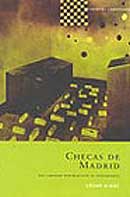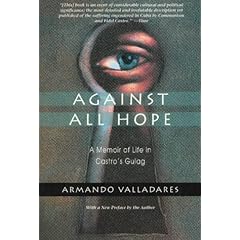
www.ErikSvane.com
The bilingual weblog that dares to go
beyond "ideas" and "opinions"
to see what lies hidden underneath
Contact the Webmaster
Romanticists Overlook Allende's Many Faults
It is probably appropriate that on the 30th anniversary of the coup that deposed Salvador Allende, Chile's president should wax romantically on his late predecessor at the head of the country's socialist party. (Unless otherwise noted, all quotes in this piece are from the 30th anniversary speech in Santiago.)
 It may not, however, be very truthful. Recalling that era in an interview two years earlier, the same Ricardo Lagos admitted that "we put the interests of the party before the interests of the people". In conversations that the New York Times' Clifford Krauss conducted exclusively with members of Allende's party, it emerged again and again that they implicitly blamed the party’s radicalism for Chile’s hyperinflation, shortages, and economic collapse in 1972 and 1973, conceding that a crucial reason for the September 11 coup was the Socialists' encouragement of peasant land invasions and worker takeovers of factories, going as far as calling on military units to mutiny. In other words, the Marxist leader, like so many others, was preparing a worker's paradise.
It may not, however, be very truthful. Recalling that era in an interview two years earlier, the same Ricardo Lagos admitted that "we put the interests of the party before the interests of the people". In conversations that the New York Times' Clifford Krauss conducted exclusively with members of Allende's party, it emerged again and again that they implicitly blamed the party’s radicalism for Chile’s hyperinflation, shortages, and economic collapse in 1972 and 1973, conceding that a crucial reason for the September 11 coup was the Socialists' encouragement of peasant land invasions and worker takeovers of factories, going as far as calling on military units to mutiny. In other words, the Marxist leader, like so many others, was preparing a worker's paradise.
Some state that Allende should have been given a chance, supposedly, to demonstrate his democratic credentials. Latter-day romanticists fail to remember that many like-minded people did receive a chance; people with such names as Castro, Ortega, Ceausescu, Mao, Stalin, and Lenin. Needless to say, their so-called dreams did not lead to an "utopian element", or even come close thereto, as it would be fair to say that they made conditions far more insecure and far worse than the so-called "inhumane" capitalist societies they sought to overthrow or, at the very least, improve upon.
To the "dazzled" of Europe, those "visionaries" who died before their time or saw themselves otherwise sidelined are supposed to have been the real thing, somehow. But why should there be any guarantee that such people as Allende, Che Guevara, Trotsky, etc, would not have emerged, willfully or not, as a Honecker, a Brezhnev, or a Kim Il-Sung? Nobody should suggest that General Pinochet was a hero or a saviour or a choirboy, but it cannot be denied that at least the army he belonged to figured that the experience of the aforementioned "utopians" was not worth the risk in Chile.
It is also exaggerated to claim that Allende was democratically elected. In any case, so was Adolf Hitler. Neither received a majority. And Allende's 36.3% win is pretty close to the 37.3% of the vote that put the Nazis in power in 1932. Hitler, too, presumably deserved a chance to set out "on a new road", conjure up "defining labels", make his people and the world dream, not have his experiment trampled upon by outside forces, and not have democracy imposed upon his people by the force of bayonets.
 Again and again, the truth eventually reveals how the sequels "of arrests, death, torture, and exile" are often worse under would-be leftist authoritarian régimes than under rightist ones. Stalin, of course, killed far more people than Hitler did, and a recent best-seller (Checas de Madrid by César Vidal) teaches that the Spanish Republicans ran a series of sinister detention centers patterned on the Soviet Checas, which savagely tortured and often slaughtered its prisoners, without the slightest hint of legality; the dead and disappeared in the province of Madrid alone were, in only a couple of years, almost four times as numerous as the victims over 17 years of none other than… Chile's Pinochet (almost 12,000 in Madrid versus some 3,000 in Chile). In the Miami Herald, Carlos Alberto Montaner added that before going after alleged criminals abroad, such Europeans as Judge Baltasar Garzón would perhaps do better to start bringing their own killers (both left and right) to justice.
Again and again, the truth eventually reveals how the sequels "of arrests, death, torture, and exile" are often worse under would-be leftist authoritarian régimes than under rightist ones. Stalin, of course, killed far more people than Hitler did, and a recent best-seller (Checas de Madrid by César Vidal) teaches that the Spanish Republicans ran a series of sinister detention centers patterned on the Soviet Checas, which savagely tortured and often slaughtered its prisoners, without the slightest hint of legality; the dead and disappeared in the province of Madrid alone were, in only a couple of years, almost four times as numerous as the victims over 17 years of none other than… Chile's Pinochet (almost 12,000 in Madrid versus some 3,000 in Chile). In the Miami Herald, Carlos Alberto Montaner added that before going after alleged criminals abroad, such Europeans as Judge Baltasar Garzón would perhaps do better to start bringing their own killers (both left and right) to justice.
 Is it too much to say that more Chiliens would have died and suffered (if only economically), had Allende's party remained in power? Maybe. But if the past — and other leftist systems — serve as any kind of example, that has often been the case, including in Latin America. In that perspective, the testimony of a Cuban dissident is instructive: the jails of Fidel Castro are far worse than those of Fulgencio Batista, he says. Who is the writer? A capitalist reactionary? An imperialist? A (neo-)fascist? A Batista ally? No.
Is it too much to say that more Chiliens would have died and suffered (if only economically), had Allende's party remained in power? Maybe. But if the past — and other leftist systems — serve as any kind of example, that has often been the case, including in Latin America. In that perspective, the testimony of a Cuban dissident is instructive: the jails of Fidel Castro are far worse than those of Fulgencio Batista, he says. Who is the writer? A capitalist reactionary? An imperialist? A (neo-)fascist? A Batista ally? No.  Gustavo Arcos Bergnes is Castro's fellow revolutionary, imprisoned with the future Líder Maximo in the mid-1950s. And he experienced Castro both as a fellow cell-mate and (twice) as a warden. Castro's violent revolutionaries of the 1950s were treated far more humanely by the dictator Batista than non-violent human rights activists are treated by Castro today, he says as he recalls getting special treatment (hospital rooms as cells, private cooking facilities, etc) and pardons after only 21 months. (Since Castro's coming to power, incidentally, there have been 20,000 summary executions, but — unlike Pinochet's 3,000 victims — these are not of any more concern to "human rights activists" than those killed by Spain's Republicans in the 1930s.)
Gustavo Arcos Bergnes is Castro's fellow revolutionary, imprisoned with the future Líder Maximo in the mid-1950s. And he experienced Castro both as a fellow cell-mate and (twice) as a warden. Castro's violent revolutionaries of the 1950s were treated far more humanely by the dictator Batista than non-violent human rights activists are treated by Castro today, he says as he recalls getting special treatment (hospital rooms as cells, private cooking facilities, etc) and pardons after only 21 months. (Since Castro's coming to power, incidentally, there have been 20,000 summary executions, but — unlike Pinochet's 3,000 victims — these are not of any more concern to "human rights activists" than those killed by Spain's Republicans in the 1930s.)
To return to the idea of Allende (controversy on his death here) wanting to impose a communist dictatorship, José Piñera opines that because
President Allende became a tyrant when he broke his solemn oath to respect the Constitution and the Chilean laws [and because] his government [had] fomented the creation of armed militias … the origin of the Pinochet government is that of any revolutionary one, in which only the use of force was left in order to remove a tyrant [and to] "put immediate end" to these constitutional violations.
… The Economist said it clearly at the time: "The temporary death of democracy in Chile will be regrettable, but the blame lies clearly with Dr. Allende and those of his followers who persistently overrode the Constitution" (September 15, 1973).
Summing it all up, Senator Ricardo Núñez Muñoz added in the NYT interview that “It’s wrong to say that the CIA, the armed forces, and the bourgeoisie alone brought down the Allende government. It’s obvious we need to admit we made critical economical and political errors that were as decisive if not more decisive” (emphasis mine). No less a figure than the president of the Partido Socialista, Núñez went on to conclude that “we know another Allende-like experiment would only be a collossal failure.”
|
© Erik Svane Lire une version française de cet article |